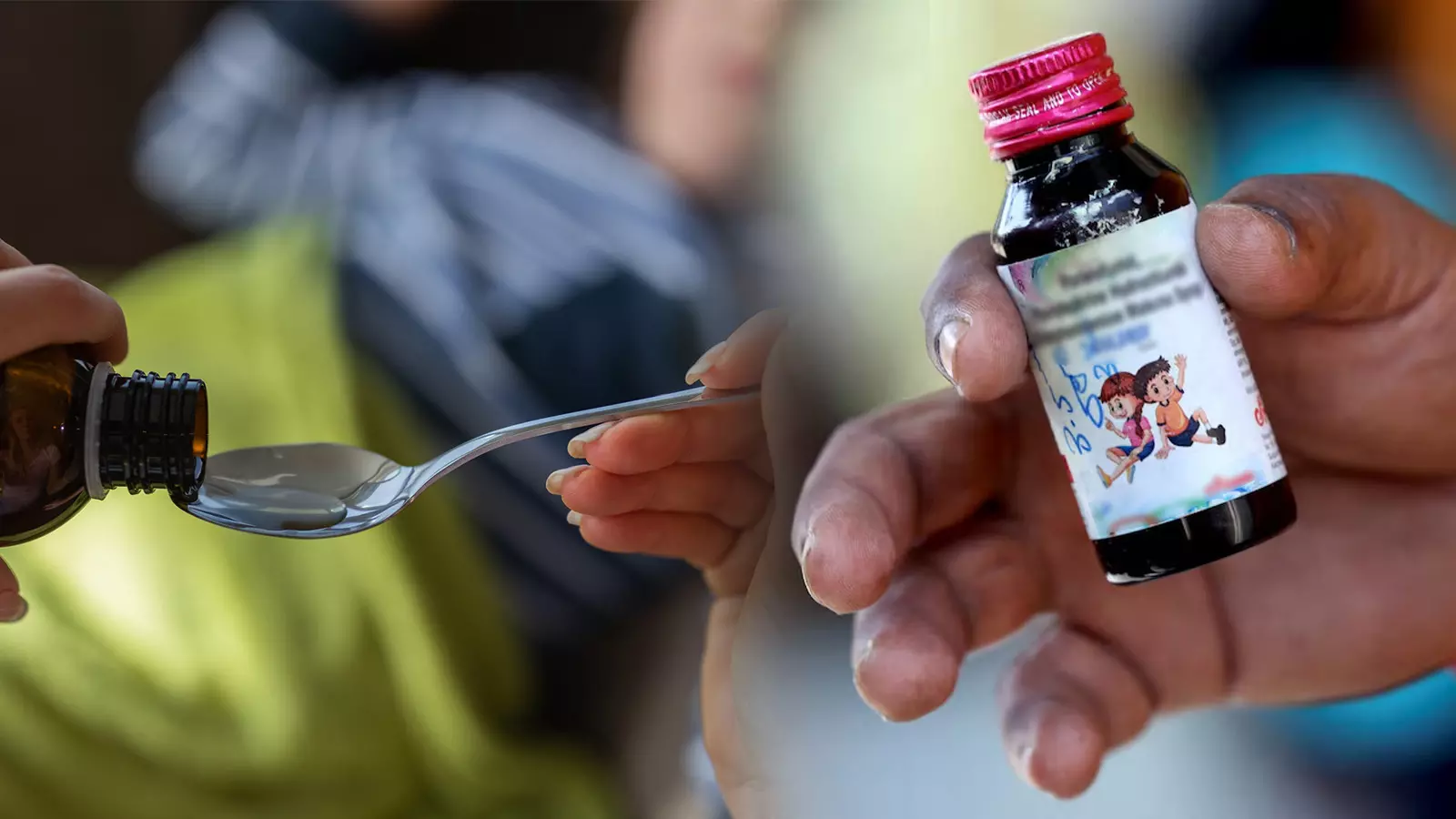
WHO asks India if Coldrif cough syrup was exported as death toll rises
WHO seeks clarification from India on whether toxic Coldrif syrup was exported, flags regulatory gaps in testing domestically sold medicines for toxins

The World Health Organisation (WHO) has sought clarification from Indian authorities on whether the Coldrif cough syrup, linked to multiple child deaths in the country, was exported to other nations, even as the death toll went up in the country, according to a PTI report on Thursday (9 October).
The global health agency will reportedly decide whether to issue a 'Global Medical Products Alert' on the cough syrup, Coldrif, after receiving an official confirmation from authorities in New Delhi. The WHO issues such alerts for substandard and contaminated medical products.
Also Read: Cough syrup deaths: Sresan Pharma owner arrested, plant sealed
WHO seeks export details
"The WHO on Wednesday (October 8) has asked for a clarification on whether the cough syrup linked to children deaths in the country was exported to other countries as part of the routine process", a PTI report quoting sources said.
The WHO has also raised concerns over a "regulatory gap" in the screening of domestically marketed medicines in India for the presence of toxic industrial chemicals such as diethylene glycol (DEG) and ethylene glycol (EG).
It further flagged the potential risk of such contaminated products being exported to other countries, particularly via unregulated channels, the regulatory gap in DEG/EG screening for domestically marketed medicines in India and identifying the source of the contamination and identifying and removing any contaminated pharmaceutical material which may be in circulation.
Toxins in cough syrups
In a statement, the WHO said it was "deeply saddened" by the deaths and extended its condolences to the affected families. It confirmed that it had reached out to the Central Drugs Standard Control Organisation (CDSCO) for clarification regarding the contaminated medicines and to determine whether any of the products had been exported.
According to CDSCO, diethylene glycol was detected in at least three cough syrups — Coldrif, Respifresh TR, and ReLife.
The regulatory body also informed the WHO that these products had been recalled, and the manufacturers instructed to cease production of all pharmaceutical products. It added that none of the affected syrups had been exported from India.
Also Read: Why cough syrup tragedy exposes India's chronic drug regulation crisis
Death toll rises
Meanwhile, two more children from Chhindwara district in Madhya Pradesh have died from suspected kidney failure caused by consumption of the adulterated Coldrif cough syrup, taking the total number of deaths to 22 in the state, a government official told PTI on Thursday.
The children, residents of Parasia town, reportedly suffered kidney infections linked to the toxic syrup. Several others from the area are undergoing treatment in Nagpur, officials said.
In Rajasthan, at least three children are also suspected to have died after consuming cough syrups in different districts.
Many of the affected children had been given Coldrif, samples of which were found to contain 48.6 per cent diethylene glycol, a highly toxic chemical used in industrial processes, but deadly when ingested.
Also Read: CDSCO to initiate serious action against Coldrif makers following 14 deaths in MP: Report
SIT formed, manufacturer arrested
The Madhya Pradesh Police have constituted a Special Investigation Team (SIT) to probe the deaths and have filed a case against Sresan Pharma, a Tamil Nadu-based manufacturer of Coldrif.
The owner of the company, Ranganathan Govindan, was arrested in Chennai in connection with the case, according to Sub-Divisional Officer of Police (SDOP) Parasia, Jitendra Singh Jaat. The factory has also been sealed by authorities, he said.
In response to the growing crisis, the Drugs Controller General of India (DCGI) has issued an advisory to all state and union territory drug controllers, urging strict testing of raw materials and finished pharmaceutical products before market release.
The DCGI stated that during recent inspections and investigations into medicines declared ‘Not of Standard Quality’, it was found that many manufacturers were failing to test each batch of excipients and active pharmaceutical ingredients (APIs) for compliance with prescribed safety standards.
(With agency inputs)

